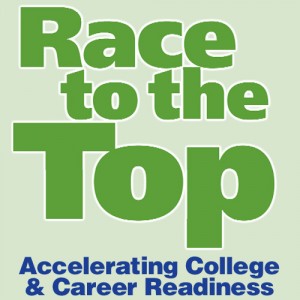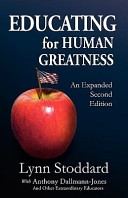 I have never tried this thing of blogging each day from an event. My typical blog piece requires about four to twelve hours of work writing or at least staring at the computer thinking what to write. Tonight I figure I have about an hour to pound this out.
I have never tried this thing of blogging each day from an event. My typical blog piece requires about four to twelve hours of work writing or at least staring at the computer thinking what to write. Tonight I figure I have about an hour to pound this out.
This my third AERO conference, my strategy has evolved to focusing on connecting with people, not so much in attending workshops for the content of those sessions. Reconnecting with people I already know, plus making new connections with a few people that I don’t already know that I can include in my circle. Also with Sally in attendance as well, I really wanted to introduce her to a handful of people that I have either met at previous conferences or interacted with through the phone or the Internet on various projects or discussions.
Continue reading →
Category Archives: Education
Day 0 – On the Train to the AERO Education Conference
 When it was announced that this year’s Alternative Education Resource Organization (AERO) conference was going to be in Portland OR, I decided I would go, and rather than fly to Portland, I would take the train up the coast. I had journeyed back east to previous AERO conferences in 2007 and 2008 in Albany NY, but had not been able to attend the past two years. And this go round, Sally decided she would come too.
When it was announced that this year’s Alternative Education Resource Organization (AERO) conference was going to be in Portland OR, I decided I would go, and rather than fly to Portland, I would take the train up the coast. I had journeyed back east to previous AERO conferences in 2007 and 2008 in Albany NY, but had not been able to attend the past two years. And this go round, Sally decided she would come too.
So our train was three hours late arriving in Van Nuys where we boarded, but once we were on the train and soon headed up the central California coast, it was “all good” as they say. So we spent the night in our cozy little sleeping compartment overnight and are now in northern California approaching Mount Shasta. As a means of transportation, the train is not about just getting from point A to point B, but enjoying the journey.
Continue reading →
A Tale of Two Education Reformers
It was Horace Mann and his lesser known comrades in the 1830s that launched the United States into the mode of top-down education “reform” initiatives by the meritocratic and entrepreneurial elite. The legacy today is perhaps our continuing and stubbornly OSFA (one size fits all) public school system. Frederick Taylor carried that torch in the late 19th Century applying his “Scientific Management” principles to public schools. His legacy is timed classes, bells and forms in triplicate. John Dewey continued the “reform” tradition in the early 20th Century with his “Democracy and Education” and focus on civics and social studies. And in the 1990s Rod Paige brought the country his “Houston Miracle”, and its legacy, No Child Left Behind and high-stakes standardized testing.
Certainly no consistent political agenda among the four… or is there? Mann and Dewey would be considered political progressives in their day, and Taylor and Paige conservatives. But they all believed in the top-down, rather than bottom-up approach to educational governance. That is, education was a compelling state interest and therefor the state should call the shots and stage-manage every child’s education.
Today there is no shortage of members of the meritocratic elite who try to make their mark and write their legacy as education “reformers”. Bill Gates comes to mind as the exemplar, along with numerous other individuals and foundations that plow millions of dollars into studies and programs to attempt to rethink, reinvent, and revitalize our public schools. But nearly always from that top-down perspective, looking for some “best practice” that can be turned into a single grand new scheme for educational transformation. Continue reading →
The Myth of the Common School
 There are at least two misnomers out there today about the beginnings of the U.S. public school system…
There are at least two misnomers out there today about the beginnings of the U.S. public school system…
1. That it was set up to to bring basic instruction in reading, writing and arithmetic to the children whose families did not have the means to hire tutors or send their children to private schools.
2. That it was set up on the factory model to train workers to work in the proliferating factories of the beginnings of industrialism in the first half of the 19th Century.
Though our public schools eventually adopted the “three R’s” and the factory model of timed classes, bells and such, those were later “innovations”.
The reality of the beginnings of U.S. public schools is quite different, and a fascinating book to read on this subject is The Myth of the Common School, written by Charles Leslie Glenn Jr. in the mid 1980s. The “Common school” being the original name given to the universal one-size-fits-all public schools envisioned and developed by Horace Mann and other education reformers of the early 19th Century.
Continue reading →
Under-Imagined and Over-Taught?
 We seem to have become a culture obsessed with programming our kids for success through instruction rather than acknowledging that real learning is mostly about exploration and discovery which includes a lot of the dreaded “F” word… failure. The juxtaposition of two items in the news this week, along with the reappearance of a J.K. Rowlings speech from 2008, speak to this obsession and good reasons to overcome it in favor of a more imaginative learner-driven paradigm for learning, to achieve the right dynamic between imagination and instruction in the human developmental process.
We seem to have become a culture obsessed with programming our kids for success through instruction rather than acknowledging that real learning is mostly about exploration and discovery which includes a lot of the dreaded “F” word… failure. The juxtaposition of two items in the news this week, along with the reappearance of a J.K. Rowlings speech from 2008, speak to this obsession and good reasons to overcome it in favor of a more imaginative learner-driven paradigm for learning, to achieve the right dynamic between imagination and instruction in the human developmental process.
The first news item is recently published research looking at the earliest periods of human development, showing that instruction limits the imagination applied to play and learning among young children.
Continue reading →
Un-College
 As a follow-up to my previous piece, “Unschooling Rather Than Highschooling”, I want to bring you up to date on my two kids’ unschooling sagas as they continue to choose to chart their own course as young adults. Neither Eric or Emma has chosen to go to college (though Emma has taken several community college and university extension classes). Instead, they have continued to launch their own projects, some successful and others significant failures, but all profound learning experiences moving them along their developmental paths.
As a follow-up to my previous piece, “Unschooling Rather Than Highschooling”, I want to bring you up to date on my two kids’ unschooling sagas as they continue to choose to chart their own course as young adults. Neither Eric or Emma has chosen to go to college (though Emma has taken several community college and university extension classes). Instead, they have continued to launch their own projects, some successful and others significant failures, but all profound learning experiences moving them along their developmental paths.
It’s ironic that neither has chosen to enroll in higher education given the family pedigree. Their four grandparents all have college degrees, including one PhD. Their mom has two Masters, one in public health and a second in marriage and family therapy, while I have two Bachelors, one in speech and the other in computer science. Aunts and uncles are highly schooled as well. Certainly their parents and the entire extended family had the expectation when they were born that they would go to college. My partner Sally’s parents even starting significant college funds for them when they were born.
Trying and failing… some people say there is no better way to educate oneself. Yet we have a conventional education system for our youth built around externally orchestrated programming for success. Educators and savvy parents collude to prepare students for successful testing to get into the best possible college to guarantee the best possible chance for success on the job.
Both our kids have chosen not to go with that program. Here are some of the projects they’ve undertaken during what would conventionally be college years for many of their peers.
Continue reading →
Unschooling Rather Than Highschooling
 This is a particularly long piece, but I think it captures the essence of what “unschooling” can be during what would conventionally be ones high school years. It chronicles highlights of the educational journeys of my two kids (Eric now 25 and his sister Emma now 21) who made the decision (with their parents’ consent) not to go to high school, which facilitated their own self-initiated “deep learning” projects done instead.
This is a particularly long piece, but I think it captures the essence of what “unschooling” can be during what would conventionally be ones high school years. It chronicles highlights of the educational journeys of my two kids (Eric now 25 and his sister Emma now 21) who made the decision (with their parents’ consent) not to go to high school, which facilitated their own self-initiated “deep learning” projects done instead.
To set the context for their unschooling experience, we pulled Eric out of school in February 2000 a month after his 14th birthday because it had become clear that he hated going to school and, being a total autodidact, had a profound incompatibility with the conventional instructional academic environment. The previous year we had hired an educational specialist who had worked with him for several month trying unsuccessfully to help him develop study skills and get past his determination not to to do any home work he considered “boring and pointless”. Earlier in the current year, he had gotten everyone’s attention by writing “Fuck math!” as his only answer on the State of California standard math test given to all eighth-graders in the state. That expletive, a culmination of sorts, of years of becoming more and more math-phobic under the tutelage of “drill and kill” math teachers. With his single scrawled answer on the many-question scantron test form, we could tell from subsequent meetings and other discussions with the school staff, that they were reframing Eric as a problem kid, a frame he too seemed to be internalizing.
Since the beginning of the school year, Eric’s mom had done a fair amount of research on the Internet on alternative schools and even the possibility of homeschooling. The few really alternative schools in our area were hugely expensive private schools beyond our means. Even if we could have afforded such a school, Eric was such an “autodidact” (self-learner) and so burnt out we weren’t confident any school environment would work for him. So against conventional wisdom and the advice of friends and even some family members, we finally made our anguished decision to pull him out and figure out how to educate him at home. Though his mom and I both had jobs, we had some flexibility in our schedules, and my mom was now living in our guest house, so there generally was an adult around, but Eric would have to pursue his curriculum mostly on his own.
By the time our daughter Emma completed eighth grade at a small alternative charter school, her brother Eric was already in his fourth year of unschooling, and mom and dad were comfortable enough to offer her at least three choices. She could leave school like her brother, go to a small alternative high school run by the same crew that had launched and ran her middle school, or she could choose “door number 3”, which was the large public “digital arts” magnet school not to far from our home.
Emma chose to attend the large public high school. She and her brother were already into the online role-playing games (that I will discuss in more detail shortly) and she also was very interested in art, so the “digital arts” focus of the magnet school (which the brochures said included computer game design) piqued her interest. Also she was hoping for a vibrant social scene with her fellow students in a big high school, like she had seen on TV in Nickelodeon’s shows “Daria”, “Doug” and “Degrassi”, all set in conventional high school environments full of the kind of intense human drama she had tasted in her online role-playing games, if not in her real life to date.
But after her first year at the school she told her mom and I that she definitely did not want to go back. The school had implemented short passing time between classes and very short lunch and nutrition breaks so there was little or no time for that social interaction and drama between kids she had been hoping for. She felt that much of the school day was wasted on bureaucratic logistics and that most of her teachers were obsessed with grades and tests and trying to keep students from failing rather than really creating a compelling learning environment. And rather than integrating digital arts into all the classes and curriculum, there was one mandatory elective class (oxymoron?… not in public schools), a digital-arts survey art class where you learned more about art than actually learn the digital tools and producing art.
Continue reading →
School Based on Universal Human Rights?
 FYI… this piece is way more initial rumination and not yet a polished argument… but here goes!
FYI… this piece is way more initial rumination and not yet a polished argument… but here goes!
Israeli teacher Yaacov Hecht, one of the founders of the “democratic education movement” says that he was inspired to reinvent schools in a democratic paradigm, a paradigm that “sees as its main goal the education towards human dignity” as set forth in the 1948 United Nations Declaration of Human Rights. In his book, Democratic Education: A Beginning of a Story, Hecht says…
Democratic education considers the protection of human rights in school as a necessary and basic condition for the beginning of work on education towards human dignity… The basic assumption of a democratic school is that a young person, living in an environment which respects him and protects his rights, will know in the future to protect human rights in all three spheres…
One – “my” and “our” human rights
Two – the rights of “the other” or “the different”
Three – the rights of the whole of humanity
Before I even attempted to plunge into Hecht’s educational philosophy, I thought I better read the thirty articles in the UN Declaration myself, which I did. I think we tend to not apply principles of human rights always to children because… they’re children. If we love them, feed them, educate them and keep them safe, that’s all the human rights they could possibly want or need, right? But then trying as always to think outside the box, I think there are at least seven of the principles called out in the UN Declaration that I find particularly applicable youth and education and offer an interesting perspective on our current prevailing public education model and the possibilities for a new more democratic approach.
Continue reading →
Charter Schools Statistics – Maybe Not What You Thought
 Charter schools have become such a flash point in the U.S. Educational debate and a real red flag of sorts for a lot of progressive folks who see the “charter school movement” (as some supporters frame it) as forwarding a more conservative anti-union, pro-privatization agenda. I, as a progressive (I’m calling myself “left-libertarian” these days) and advocate for “many educational paths”, am drawn to charter schools as the “only game in town” when it comes to trying to (take baby steps at least to) move away from an OSFA (one size fits all) public school system.
Charter schools have become such a flash point in the U.S. Educational debate and a real red flag of sorts for a lot of progressive folks who see the “charter school movement” (as some supporters frame it) as forwarding a more conservative anti-union, pro-privatization agenda. I, as a progressive (I’m calling myself “left-libertarian” these days) and advocate for “many educational paths”, am drawn to charter schools as the “only game in town” when it comes to trying to (take baby steps at least to) move away from an OSFA (one size fits all) public school system.
As a parent (and not a teacher) I am sympathetic to the union issue in particular, not because I think that adult school staff should be divided into “labor versus management” but because I think teaching is a very important profession and that teachers need to create professional associations so that they are seen as such and have the appropriate clout in school governance and larger societal questions. I think most charter schools, like conventional public schools, are better served if teachers play a significant (if not the primary) role in school governance.
Though people sometimes joke, “Don’t confuse the issue with the facts!”, I did some research on any statistics I could find on charter schools, to get a better sense from the data available of the scope of the charter school “movement” or “infection” or however you might characterize it.
Continue reading →
Educating for Human Greatness
 The title of this piece is the goal of my friend Lynn Stoddard, who has worked for over 50 years as an elementary school teacher, principal and consultant. His goal is to elevate the profession of teaching and inspire teachers to truly facilitate the development of a young human being rather than merely instruct them on standardized curriculum so they can pass the tests. I am aware of no greater contemporary champion for a holistic approach to teaching and education consistent with the great education innovators of the 20th Century like John Dewey, Waldorf founder Rudolph Steiner, and Maria Montessori.
The title of this piece is the goal of my friend Lynn Stoddard, who has worked for over 50 years as an elementary school teacher, principal and consultant. His goal is to elevate the profession of teaching and inspire teachers to truly facilitate the development of a young human being rather than merely instruct them on standardized curriculum so they can pass the tests. I am aware of no greater contemporary champion for a holistic approach to teaching and education consistent with the great education innovators of the 20th Century like John Dewey, Waldorf founder Rudolph Steiner, and Maria Montessori.
From chapter 1 page 1 of his book Educating for Human Greatness, Lynn frames the challenges for the profession of teaching in the current US educational context…
In 1983 a National Commission on Excellence in Education issued a “Nation at Risk Report” and set in motion a series of government imposed reforms, all based on a false goal: student achievement in curriculum. One of these reforms, “No Child Left Behind,” put extra pressure on teachers to ignore the diverse needs of students and, instead, standardize students in reading, writing and math. More recently the U.S. Department of Education has installed a set of national standards for student uniformity. Subject matter specialists, along with major influence from business and industry, have decided what all students should know and be able to do at each grade level. Tests are administered to assess student learning of the prescribed material. In some cases the tests are used as an assessment of the quality of teaching. This top-down, misguided pressure is evidence that public school teaching is not regarded as a profession in our society.

